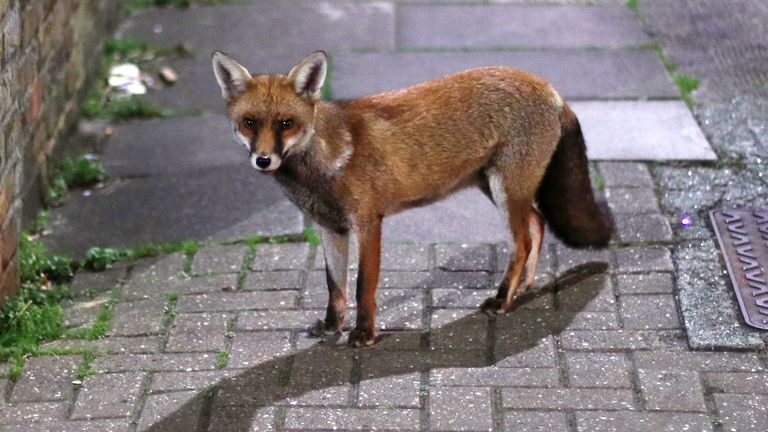UK
Rural and urban foxes just as smart as each other, study finds. Might the same be true of humans? – Scotsman comment
In Arkansas Traveller, a 1992 song by Michelle Shocked, an apparent city-dweller spars with a local in the countryside. One barb by the former, “hey farmer, you're not too far from a fool, are you?”, is met with “just a barbed-wire fence between us” in response.
Does urban living somehow make us smarter? Do ‘country cousins’ deserve their reputation or have they been unfairly besmirched? A new study – admittedly of animals but, hey, aren’t we all? – may, just possibly, shed some light.
Hull University researchers spent two years studying wild foxes at 104 locations in Scotland and England, leaving puzzles that offered a reward for successful completion. There was a theory that urbanisation had made foxes smarter because of city life’s greater range of challenges. But while the researchers found that the city foxes were “bolder” – more prepared to touch the puzzles – they weren’t apparently any better at solving them than their rural counterparts.
However, perhaps the foxes were adopting the farmer’s role. Why solve a human city-slicker’s puzzle, when there’s an easier meal to be found?
LIKE COYOTES IN NORTH AMERICA
Urban foxes are bolder but not cleverer than their rural relatives, study finds
Research finds urbanisation has made the animals bolder when it comes to finding food but hasn't increased their intelligence.
Tuesday 8 August 2023 UK

Foxes that live in London and other urban areas are generally bolder than foxes living in rural areas, new research has found.
However, city life has not made urban foxes any cleverer than those in the countryside, according to the study.
A team from the University of Hull spent two years studying wild foxes in 104 locations in England and Scotland by leaving them tasks to do for rewards.
The foxes had to use simple behaviours to gain access to the food, including biting, pulling, or lifting materials with their paws and mouth.
Psychologist and animal behaviourist Blake Morton, who led the research, said they discovered that urban foxes were bolder about physically touching the puzzles but did not show greater intelligence than the rural animals when trying to work out how to get to the food.
Dr Morton said: "For years, researchers have claimed that urbanisation is making wildlife bolder and smarter due to the challenges they face from 'life in the city'.
"In our study, we tested this hypothesis in wild red foxes by giving them unfamiliar puzzle feeders to see how they would react.
"We found that urban foxes were more likely to behave bolder than rural populations in terms of their willingness to physically touch the puzzles, but they were not more motivated to try to gain access to the rewards inside."
The study, published in Animal Behaviour, found that foxes from 96 locations acknowledged the puzzles, but foxes from only 31 locations touched them and foxes from just 12 locations gained access to the food.
All of the foxes ate the food when it was left on the ground with a puzzle.
Dr Morton told Sky News more research needs to be done to see if urban or rural foxes are more intelligent.
"Animals' behaviour is far more nuanced than sweeping generalisations like 'an urban fox is a bold fox' - that's not always true based on our findings, and so it means that certain factors likely shape individual fox behaviour beyond just living in a city," he said.
The fox study, which included academics from the universities of Lincoln and Glasgow, and Atlanta Zoo, is part of the British Carnivore Project - a nationwide research programme established in 2021 by Dr Morton for the purpose of understanding the impact of climate change and urbanisation on the behaviour and cognition of wild carnivores.
Dr Morton said: "Our findings are interesting because urbanisation is the fastest form of landscape transformation on the planet, and so urban foxes are likely exposed to many unfamiliar situations.
"Foxes are renowned for thriving in cities, and our study suggests that bolder behaviour may help urban foxes adapt to such settings. However, just because a fox lives in a city doesn't necessarily mean it'll engage in problem-solving.
"This latter finding challenges the long-standing belief that urban foxes are notorious scavengers of other human-made food containers, such as litter and the contents of outdoor bins.
"Undeniably, litter and outdoor bins can provide at least some urban foxes the opportunity for an easy meal but, for many other foxes, our study shows that their behaviour is much more nuanced; other factors besides bolder behaviour may lead some foxes to exploit such resources, which my team is currently investigating."

No comments:
Post a Comment